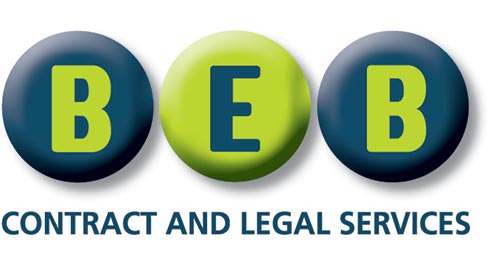Setting up a company with a partner, whether it be a business partner or friends and family, can often be a tricky undertaking. If something goes wrong and the business goes down the pan at some point in the future, it is not only your capital that is in danger of being lost. You could also end up losing close friendships and other important alliances. There is also the risk of you facing expensive legal disputes that could frustrate you no end.
Whilst pessimism is not a good trait in any budding business owner, as a boy scout would say, it certainly pays to be always prepared. By making the necessary preparations, you can avoid conflicts and disputes with your business partners if and when things don’t go as planned.
Shareholders’ Agreement Explained
One way to prepare for potential future disputes with business partners is to draw up a shareholders’ agreement. You might assume that you don’t need one because you trust and greatly respect all your shareholders. However, no one can predict exactly what will happen in the future. Because close friendships and relationships can change and even deteriorate over time, it is always best to have a safeguard in place to ensure that everyone’s interest will be protected.
So what is a shareholders’ agreement?
As the name implies, a shareholders’ agreement is an agreement between the shareholders or owners of a company. It sits alongside the company’s articles of association and regulates different aspects of the ownership of the business.
What does a shareholders’ agreement do?
A shareholders’ agreement serves many purposes. Here are some examples:
- Determines who owns what part of the company
- Identifies who possesses the ability to make key business decisions
- Helps shareholders determine how shares can be created and transferred and what happens when one of them leaves the company
- Governs how the company is run
- Outlines shareholders’ rights and obligations; and
- Protects shareholders’ investments
When should a shareholders’ agreement be put in place?
Ideally, a shareholders’ agreement should be drawn up as soon as the company is established and the shares are first distributed. This will help the shareholders understand what they can expect from the business and what their respective obligations are to the company.
It is not uncommon for some investors to delay discussing a shareholders’ agreement in order to focus more on setting up the business. Whilst there’s nothing wrong with this approach, they may never be able to find the time to do it due to the numerous other priorities that may arise. Even if they do eventually get around to putting a shareholders’ agreement in place, by then the shareholders and investors may have differing opinions and expectations regarding how the business should be run. This can make it difficult for them to agree to the terms of the shareholders’ agreement.
What should be included in a shareholders’ agreement?
This question primarily depends on the number of shareholders and their shareholdings. Nevertheless, there are some key provisions that should be included regardless of the number of existing shareholders. These key provisions should discuss or be related to:
- The transfer and issuance of shares
- Inclusion of any tag along or drag along provisions
- Protection for shareholders who own less than 50% of the shares
- Dividend payments and policies
- Competition restrictions
- Dispute resolutions
- Shareholders’ rights and obligations
- How to run and manage the company
Importance of Having a Shareholders’ Agreement
Ensuring that a shareholders’ agreement is in place is akin to having a will that details how your estate should be handled should you die. The only difference is that this document is designed specifically for your business. Let’s take a look at why it is considered a good business practice to draw up a shareholders’ agreement.
- It determines what needs to be done when shareholders fall out
As the saying goes, nothing is permanent in this world except for change. Human relationships, including those made with business partners, can change over time. Whilst it may be difficult to imagine a falling out with your shareholders or business partners in the future, especially if they are your friends or family, it can and does happen. For this reason, it’s important to have a written agreement in place to ensure that no one will feel that they are being treated unfairly if and when a conflict arises.
A shareholders’ agreement serves as a contingency plan that will allow you to resolve or minimise future conflicts more easily and cost-effectively. If a conflict does arise, the agreement will help ensure that your business will continue as normal.
- It protects minority shareholders
Not all business ownerships are equally split in the middle. Some are divided 60%/40% or 70%/30%. There are even companies with a 99.9%/0.1% shareholding or ownership ratio. Because ownership of businesses comes in many forms, minority shareholders, or those who own less than 50% of the company shares, should feel protected so they will continue investing in your business.
A shareholders’ agreement can be drafted in a way that will ensure that minority shareholders are not treated unfairly or outvoted. Certain agreement terms can also be put into place to prevent majority shareholders from taking action without the knowledge or the vote of all shareholders.
- It helps majority shareholders manage certain issues
At times a majority shareholder would want to sell their shares. However, they may be unable to do so because a minority shareholder doesn’t agree. Terms, such as a “drag along” provision, can be included in the agreement. This will make it easier for majority shareholders to sell their shares however and whenever they see fit, provided that sales of shares are done fairly.
Having a shareholders’ agreement can also help majority shareholders prevent minority shareholders from transferring their shares to just about anyone. Minority shareholders selling their shares indiscriminately can be problematic for the company, especially if they were to sell to a competitor or to individuals other shareholders do not want to get involved with the business. With an agreement in place, such a scenario and the problems it may produce can be averted.
- It holds company management accountable for questionable actions
Contrary to popular belief, shareholders do not run the company. Because shareholders have limited rights and decision-making powers, running the company and making day-to-day decisions usually fall on company directors. Most of the time, company directors are also shareholders. However, this is not always the case.
If company directors make certain decisions that put the company in peril, having a shareholders’ agreement will help ensure that they are made accountable for their actions. The agreement can also be drafted in a way that will prevent directors from making important business decisions without first consulting or informing the shareholders.
- It helps impose confidentiality and certain restrictions
A shareholders’ agreement is essential in protecting the privacy of your business. You can include terms and clauses designed to uphold and protect the company’s intellectual property rights and trade secrets. Provisions can also be made to prevent investors or shareholders from luring away suppliers, customers, and employees with better offers once they leave the business.
Frequently Asked Questions about Shareholders’ Agreement
Besides the question “What is a shareholders’ agreement?” here are some of the most common queries about this topic.
Is it legally binding?
A shareholders’ agreement is legally binding once it has been signed and found to comply with the four common aspects of a contract: offer, acceptance, consideration, and an intention to create legal relations.
When drawing up an agreement amongst your company’s shareholders, one important thing to remember is that consideration must be made. This means that something of value must be passed within the agreement. A good example of this is the price the shareholders paid for the shares.
Is it mandatory?
Not necessarily. When you incorporate your company, you must distribute shares to people and issue articles of association. Most businesses will just use the model articles of association, which set the standards for governing a company. However, these articles of association are neither specific nor comprehensive enough to provide adequate protection for shareholders.
Is it required amongst family members?
When creating a company, it’s vital to have everyone’s responsibilities, obligations, and liabilities documented even if the individuals that will be involved in the business are your friends or family members. Because disagreements can arise even amongst people with close relationships, everyone should understand what they can and cannot do. Having a shareholders’ agreement will help set the records straight to ensure that business-related disagreements amongst family members will be avoided.
Can you change it?
With the consent of all shareholders, amendments can be made to an existing shareholders’ agreement should the need arise in the future. For instance, if you need to add or remove shareholders, you can easily modify the document. However, if you’re amending the entire agreement, it’s best to consult a legal expert and ask them to oversee or make the necessary changes.
Is it made public?
In the same way that you don’t publicise your will or insurance, a shareholders’ agreement is not to be made public unless you need to. It is designed to be kept private alongside your articles of association and other important company documents.
Conclusion
If you are building a company from the ground up with the help of several investors, drawing up a shareholders’ agreement is an effective way of safeguarding your investment. The agreement will help uphold and protect shareholders’ rights, whilst ensuring that your company is being managed properly. It also helps prevent internal disagreements and conflicts from affecting your daily business operations.
At BEB Contract and Legal Services, we are happy to assist you if you need help with drawing up a shareholders’ agreement. We can also provide you with legal advice and other related services to ensure that your company and investments are well-protected. Contact us today.

